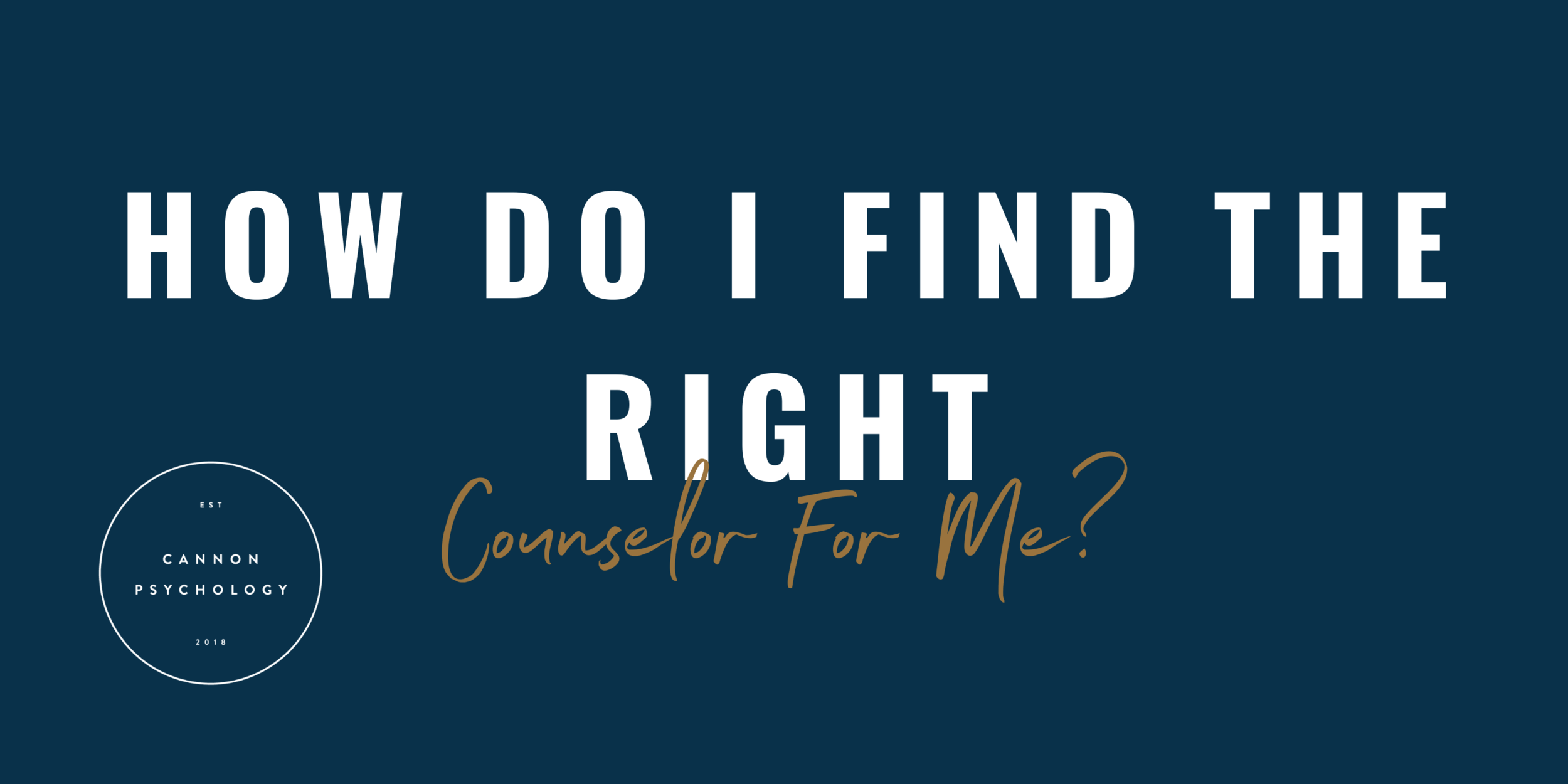How Do I Find The Right Counselor For Me?
Finding an Online Therapist
Just even the thought of sharing your personal life with a stranger feels . . . awkward. How do you even know if they are good at what they do? How do you know if they are a good fit for you? How do you find that person that can really help?
Yes, you can start looking at degrees, certificates and letters at the end of someone’s name. Those ARE important in the sense that they let you know how much education, training and experience someone has. AND you want to make sure that the person you are seeing has passed the appropriate licensing exams allowing them to legally treat people. (As psychologists, we have to pass a national exam and state exam). BUT - you could be in the room with the absolute best psychologist, and if you don’t feel comfortable with them, they won’t be effective for you.
finding the right alliance for you
There is something called a “therapeutic alliance,” which is basically this: feeling connected to your psychologist, knowing that they have your best interests at heart and feeling completely safe and respected by them. This “therapeutic alliance” has been demonstrated in research to be the most important aspect of therapy.
This is so well known by psychologists that two divisions of the American Psychological Association created a task force, reviewed all available research and stated the following:
No matter what the type of treatment used (CBT, etc), the relationship between client and therapist makes a “substantial and consistent” contribution to the outcome of the therapy.
This relationship between client and therapist accounts for why clients improve (or fail to improve) at least as much as the particular treatment method.
While identifying evidence-based-practices (EBPs), you must also include the impact of the relationship between therapist and client.
Adapting or tailoring the therapy relationship enhances the effectiveness of treatment.
The therapy relationship acts in concert with treatment methods, patient characteristics, and practitioner qualities in determining effectiveness; a comprehensive understanding of effective (and ineffective) psychotherapy will consider all of these determinants and their optimal combinations.
how to know if a counselor can help you
I have interacted with all types of credentialed psychotherapists, from Ph.D.’s to interns. What I have learned is this: every clinician has a type of client that they seem to be the best at helping. Personally, I’m the best at helping people address trauma and grief. (I am willing to admit that there are some types of treatment I’m just not great with. Head over to my FAQ’s where I admit my faults). Just because I have a Ph.D., doesn’t mean I’m the best therapist for everyone! So how will YOU know if someone is a good fit for you? Read on!
There are a few ways to vet a psychotherapist. You can always ask friends or family if they have good recommendations. You are more likely to click with these recommendations (I mean, you are friends for a reason, right?). Still do your research though - these days, many psychologists have their own websites. Scour them! You’ll get a good idea of what they are like. If you feel turned off by their site, you’ve just ruled someone out. If they’ve got blogs or video blogs, even better.
One of the most helpful ways to find out if you click with a psychologist is to call as ask for a free 15 minute phone consultation. Most psychologists will want to do this anyway to make sure that you are the type of client they can help and that they won’t be practicing outside of their own competency by treating you.
In that consultation, give them a brief (30 seconds) explanation of what’s going on with you and what you think you need help with. Pay attention to how they respond. Do they seem genuinely interested in you? Do they ask good questions? Do they offer some ideas or ways in which they would proceed with you? Do they seem confident? What is their personality like? And most importantly, how do YOU feel when you are talking with them? Do you feel understood? That will be the most important factor. If you don’t feel right (trust your gut!) then you will not be a good fit. This does not mean they are not a good treatment provider, it just means that you two aren’t a match (kind of like dating) and you need to keep looking for someone who “gets” you. Don’t worry, you will find them. It might take a minute but it’s worth it!
I hope this helps you find the right psychotherapist. If you are still feeling stuck, click here to set up a free 15 minute video consultation.
EMDR Therapy and Trauma Counseling in California and Carlsbad, CA.

